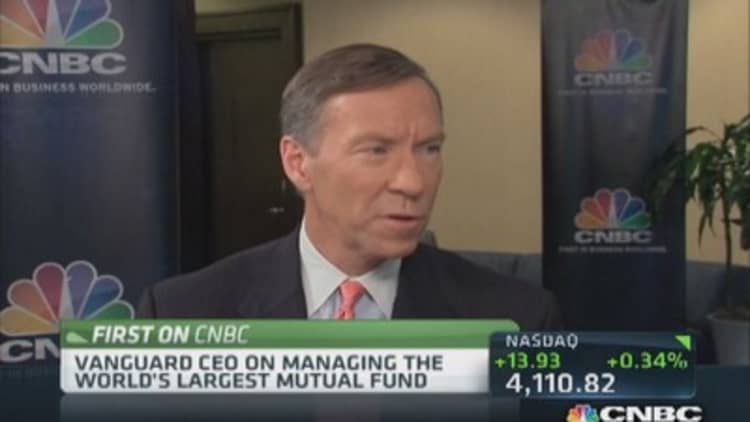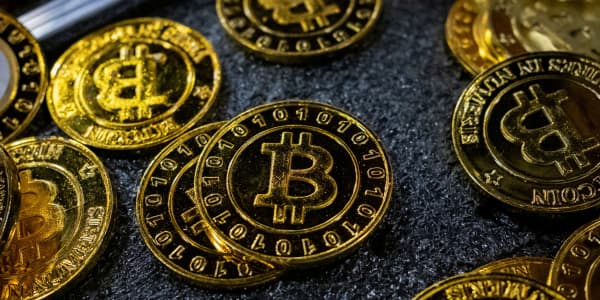
Vanguard Group is the largest mutual fund company, with $2.6 trillion in assets and $359 billion alone in exchange-traded funds. The success of Vanguard's indexing revolution—and more recently its ascendance up through the ranks of ETF managers—raises a question: Are any of its funds or ETFs too big to fail?
Last year the U.S. Treasury's Office of Financial Research issued a report on systemic risks that mutual funds could pose to the financial system, part of the ongoing debate over whether large funds and asset managers should be slapped with a systemically important financial institution (SIFI) tag.
The three largest ETF asset managers in the world—Vanguard, BlackRock and State Street Global Advisors—were all mentioned in the Treasury report.
It's a post–financial crisis regulatory aim that began with the "too big to fail" banks, but it continues to be hotly debated when it comes to applying the SIFI tag to funds.
Ultimately, it will come out of investors pockets. Investors in systemically designated funds could see their fees go up pretty dramatically.Bill McNabbVanguard Group CEO
Vanguard Group CEO Bill McNabb weighed in on the issue in an interview with CNBC at the Investment Company Institute annual conference in Washington, D.C. McNabb said if the SIFI tag is applied to asset managers and large funds, it will end up costing fund shareholders.
"Part of the problem is no one knows what the remedies would be under systemic designation, such as requirements around capital and additional fees to pay for regulation," McNabb said. "Ultimately, it will come out of investors pockets. Investors in systemically designated funds could see their fees go up pretty dramatically, and the whole purpose would be to bail out a too-big-to-fail institution."
Read MoreWhy active managers are getting crushed
The Vanguard CEO argued that there is a huge difference in the business models of banks and fund managers when it comes to the relevance of the systemically important designation. "Banks are principals, typically leveraged 10 to 1 and active on their own behalf. We are agents managing money on behalf of clients. It's not our money; it's client money. Applying banklike regulation to that model doesn't make a lot of sense to us."
McNabb also weighed in on the controversial issue of high-frequency trading, which has often caught ETFs in its path when arguments are made that the markets are "rigged" in favor of big institutions making large trades in sophisticated trading venue, such as dark pools.
McNabb took the line espoused by Vanguard Group founder Jack Bogle in recent interviews, saying high-frequency trading has had benefits for investors and the markets, even if more regulatory scrutiny is warranted.
Read MoreIs this the biggest wealth destroyer in the market?
Bogle has often criticized ETFs when they are used as trading vehicles and has said they've helped to enable strategies, including high-frequency trading.
"The huge risk of a technology breakdown is out there," Bogle warned in a recent speech. Yet Bogle believes high-frequency trading is here to stay and that it has brought some benefits, including lower trading costs.
McNabb said at the ICI conference, "High-frequency trading needs to be more closely scrutinized ... but we caution people to not overreact." He noted that the equity market now has more than 50 trading venues and is decentralized. High-frequency trading is part of the market's "central nervous system," and McNabb said, "We don't believe it's rigged."
He noted that while a new regulation like SIFI designation would be a cost likely borne by shareholders, high-frequency trading is part of a market evolution that has reduced costs.
"Look at our index funds," McNabb said. "The cost of transactions have come down. We can measure it. Our tracking error has gotten better and better over time because the implicit [trading] costs are lower."






